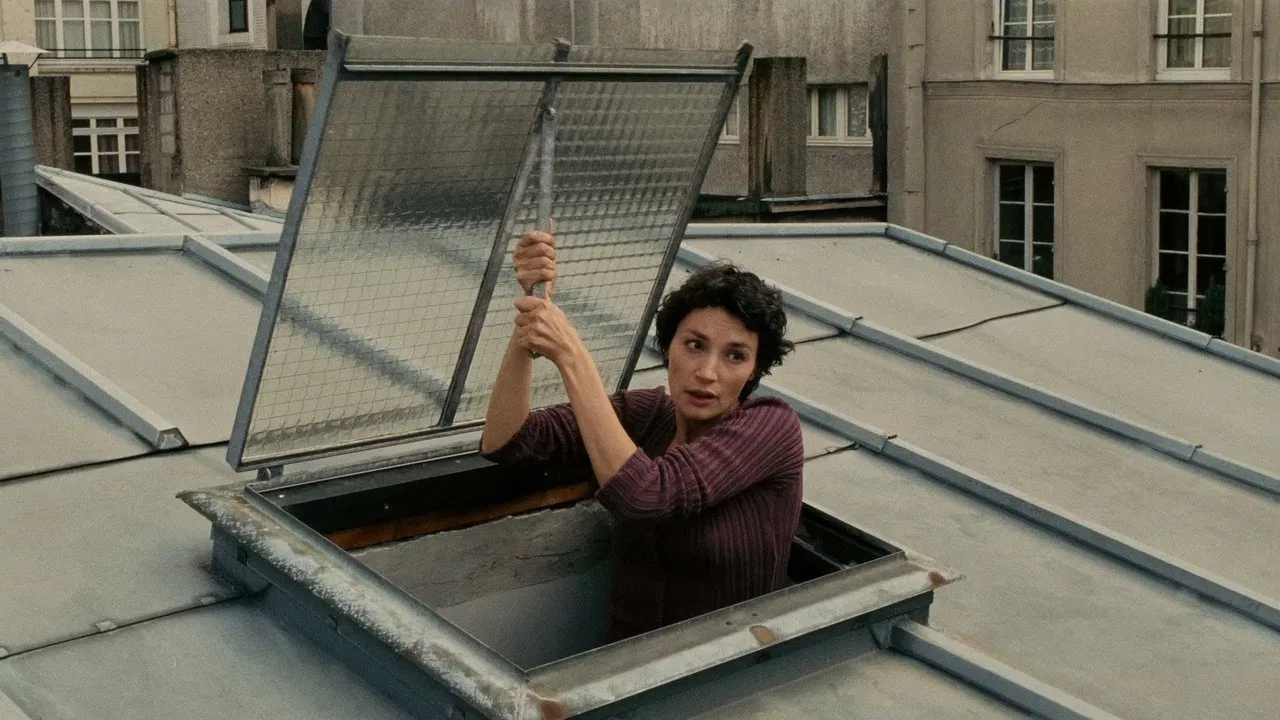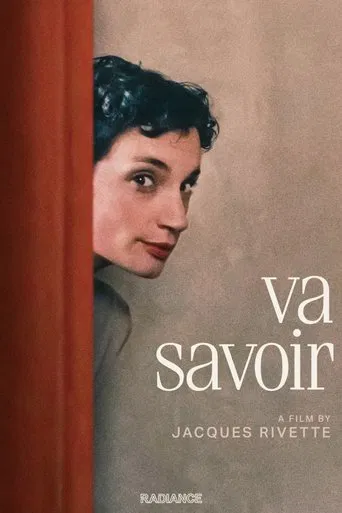WasAnnon
Slow pace in the most part of the movie.
ChicDragon
It's a mild crowd pleaser for people who are exhausted by blockbusters.
Twilightfa
Watch something else. There are very few redeeming qualities to this film.
Doomtomylo
a film so unique, intoxicating and bizarre that it not only demands another viewing, but is also forgivable as a satirical comedy where the jokes eventually take the back seat.
jotix100
Obviously, "Va Savoir", like most of Jacques Rivette's films, is not a film for the masses. On the other hand, fans of the work of Mr. Rivette will enjoy this work for its own merits.The director gives us a play within a play. We are invited to watch as an Italian theater company is rehearsing Luigi Pirandello's "Come tu mi voui", or "As You Desire Me" for the Paris engagement. The Pirandello text has a lot to do with one sees on the stage, a ploy that doesn't come across for most viewers. The theatrical production of this 1930 play is a bit over the top for out taste, as scenes are played backward on stage and we are taken to see it. Also, being a theatrical production we watch being performed, it is played with a different intensity than the rest of the film.Camille and Ugo are lovers. She had left Pierre, a French philosophy professor, and went to Italy, where she settled. Camille's relationship with Ugo is going through some rough moments, no doubt caused by her return to Paris and nerves from the play she is the leading lady. Ugo, who also acts in the play, is determined to find a rare Carlo Goldoni's play, "Il Destino Veneziano", which might have been written in Paris in the eighteenth century.A few days after the opening, Camille goes to a park where she knows she will find Pierre, a man whose habits take him to the same places all the time. The encounter goes well, but we can see that he is still in love with her. Pierre is now married to the beautiful Sonia, who is a dance instructor. Camille had left Pierre three years ago, but for him, it appears as though it was yesterday. It's obvious that for Camille everything is over, yet, Pierre seems to hope it isn't so.Ugo, on the other hand, is referred to contact someone who is a descendant of the man who helped Goldoni during his stay in Paris two hundred years before. What he discovers is a mother who is willing to give him access to the library, and just by coincidence, she is the mother of Dominique, who he had met at a library where both were doing research. It's clear from the start that Ugo likes the young woman and she, in turn, likes him also.The first two hours of the film drag a bit, and could have used some editing in putting things into a different perspective. The last half hour makes more sense as all the different conflicts come to a head and the film becomes alive, especially the funny 'duel' between Ugo and Pierre at the theater. Also, Camille's ability to rescue Sonia's valuable ring from her lover, serves to perk the action.What it's not immediately clear is the connection among all the characters we meet. Rivette doesn't help things in explaining some of the liaisons have been forged, especially between Arthur, Do's brother, and Sonia, but we have seen the clue as he is seen spying on her ballet class. Also, the Pirandello play, which we see every now and then, doesn't clarify things.Much has been said in this forum about Jeanne Balibar's Camille. She goes through a whole range of emotions in the film in a nuanced performance. Sergio Castellitto, one of the best Italian actors working in movies these days, is perfect as Ugo. He can be intense, vain, or playful, yet he doesn't stray from betraying Camille. Helene de Fougerolles is a beautiful young actress who makes a lot out of her Do. Marianne Basler is seen as Sonia and Jacques Bonnaffe plays Pierre well."Va Savoir" will be quickly dismissed by the audiences that are not prepared to go along for the trip that Jacques Rivette invites us to take with him.
noralee
"Va Savoir (Who knows?)" is for Eric Rohmer fans, though it's even slower and with less humor than Rohmer's intellectually romantic talk fests.Director Pierre Rivette is a contemporary of Rohmer's whose penchant for long, slow films has hampered his success in the U.S. And I guess this is his most accessible film, as the last half-hour suddenly becomes sweeter and filled with coincidences so the interplays of three couples become intertwined almost in a drawing-room comedy.But first are all kinds of references that went way over my head as I hadn't realized until late in the movie that the play that we keep seeing long chunks being performed in Italian by one of the couples is a Pirandello piece, with the gimmick here that we sort of see it backwards, mostly from the last scene to the start, so I missed some points. The well-acted characters do get more and more interesting as we slowly learn surprises about them such that we start rooting for different combinations than we started out understanding.It doesn't help that the subtitles are stiffly translated by a non-native English speaker, such that "kimono" is translated as "kimono" instead of as "bathrobe" or "l'aggression' as "aggression" instead of "a fight." (originally written 10/21/2001)
tomtom4now
Godard once said that "The Americans know how to tell stories, the French don't; they do something else". Seeing that most Americans commenting on this film didn't like it, I suppose it's at least partly because the film does not really tell a story, well, not in a good straightforward way at least. This might make the film tedious and overlong for some. I, however, found it charming enough to watch it non-stop from beginning to end. I don't know why; I suppose it is in part because both Jeanne Balibar and Heléne de Fougerolles are, each in her own way, so cute, funny and sexy in a way that only French actresses can be (even if they are not "beautiful" in the supermodel-silicon-tits way). Also I suppose because of the humour and lightness - too many french films tend to take themselves way too seriously, this one doesn't. Sergio Castellito is very watchable too. OK, it's not a masterpiece, maybe it could gain from some editing, etc. But it's not so bad. Plus, it made me curious to see or read "Come tu me vuoi", the Pirandello piece that the actors are performing. Seems interesting.
GasperUK
Having read many of the comments of "Va Savoir" here, (admittedly mostly from the other side of the Atlantic), I was surprised by the amount of hostility towards this film.Whilst I admit that it may have benefited from a little judicious editing, perhaps down to around two hours, this seems to me to be a well acted and entertaining slice of french life. The fact that the main characters are involved in the theatre is entirely secondary since their "real" lives depicted here are infinitely more interesting than the characters being portrayed in the Pirandello play. Perhaps that was the point.
There are enough sub-plots and unanswered questions relating to the fully rounded, three dimensional characters to keep the average viewer engrossed for the length of the film. They do not conform to stereotypes and it is not possible to pigeon-hole them. We find out much more about them as the film progresses. This is a film about people, their interwoven histories, and the formation of new relationships.Jeanne Balibar's performance, seemed to me, complex and mature. Initially, I found her portrayal cold and unemotional, but this I believe was intentional and as the film progresses, she is revealed as a complicated and enigmatic character, capable of intense emotions but also of granting sexual favours just to create a diversion.There is also a fine performance from Sergio Castellitto as Ugo, entirely convincing, except perhaps in his refusal to bed the truly delicious "Do" played by a ravishing Hélène de Fougerolles, (surely another French actress destined for greatness). Indeed, Jacques Rivette seems to have nurtured excellent performances all round.Whilst this is not a perfect film, it offers more than enough to warrant a few short hours of your time. This is a fine French film, which will remain in your memory for sometime to come and compared with much of Hollywood's current output, is a mature and thought-provoking piece of film making. Open a good bottle of red Bordeaux and settle down with its cinematic equivalent.

